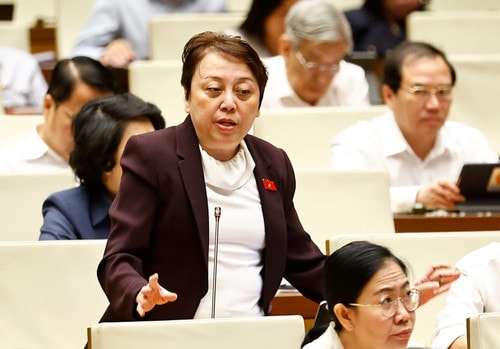Legislature weighs on abolishing death penalty for drug trafficking
Legislators engaged in the 9th session’s deliberations on May 27 morning over the proposed amendments to the Penal Code that would eliminate the death penalty for illegal drug transport, replacing it with a life imprisonment without sentence reductions.
.jpg)
Hanoi (VNA) – Legislators engaged in the 9th session’s deliberations on May 27 morning over the proposed amendments to the Penal Code that would eliminate the death penalty for illegal drug transport, replacing it with a life imprisonment without sentence reductions.
Nguyen Thi Thu Nguyet, a deputy from the Central Highlands province of Dak Lak, acknowledged that abolishing the capital punishment aligns with global trends and directives from the Politburo and the Party Central Committee. However, she urged drafting agencies to conduct comprehensive and meticulous research when proposing the removal of the punishment, particularly for drug transport offenses.

The number of drug-related crimes has not declined despite the application of the death penalty, she noted, saying criminal activities are becoming more sophisticated and dangerous, with many law enforcement officers sacrificing their lives in the line of duty.
If the death penalty is replaced with the life imprisonment, it is necessary to assess whether the punishment would provide rational deterrence or create legal loopholes that could result in increasing criminal activities.
Meanwhile, deputy Pham Khanh Phong Lan from Ho Chi Minh City challenged the logic behind the reform, stating drug crimes are becoming more serious and harder to control, with law enforcement and judicial agencies struggling to detect and handle them in a timely way.

Lan said that showing sudden leniency towards drug traffickers could be seen as disregarding the suffering of victims and their families, adding most offenders are fully aware of the consequences but they choose crime for profit.
Deputy Pham Van Hoa from the Mekong Delta province of Dong Thap took a similar stance, warning that trafficking is inseparable from drug production and sales. He elaborated without traffickers, there would be no users and recommended maintaining this crime classification.
Supporting the replacement, deputy Nguyen Thi Viet Nga from the northern province of Hai Duong said this approach demonstrates the State’s humanity while maintaining strict deterrence and ensuring long-term isolation of serious offenders.
She argued that unlike organised manufacturing and trafficking operations often linked to international networks, transporters are often poor or manipulated due to shortage of legal understanding. Since masterminds who manufacture, sell, and transport drugs already face death sentences, removing capital punishment from the trafficking charge is suitable, helping differentiate criminal responsibility and individualise punishment while providing opportunities for leniency for those capable of rehabilitation./.


